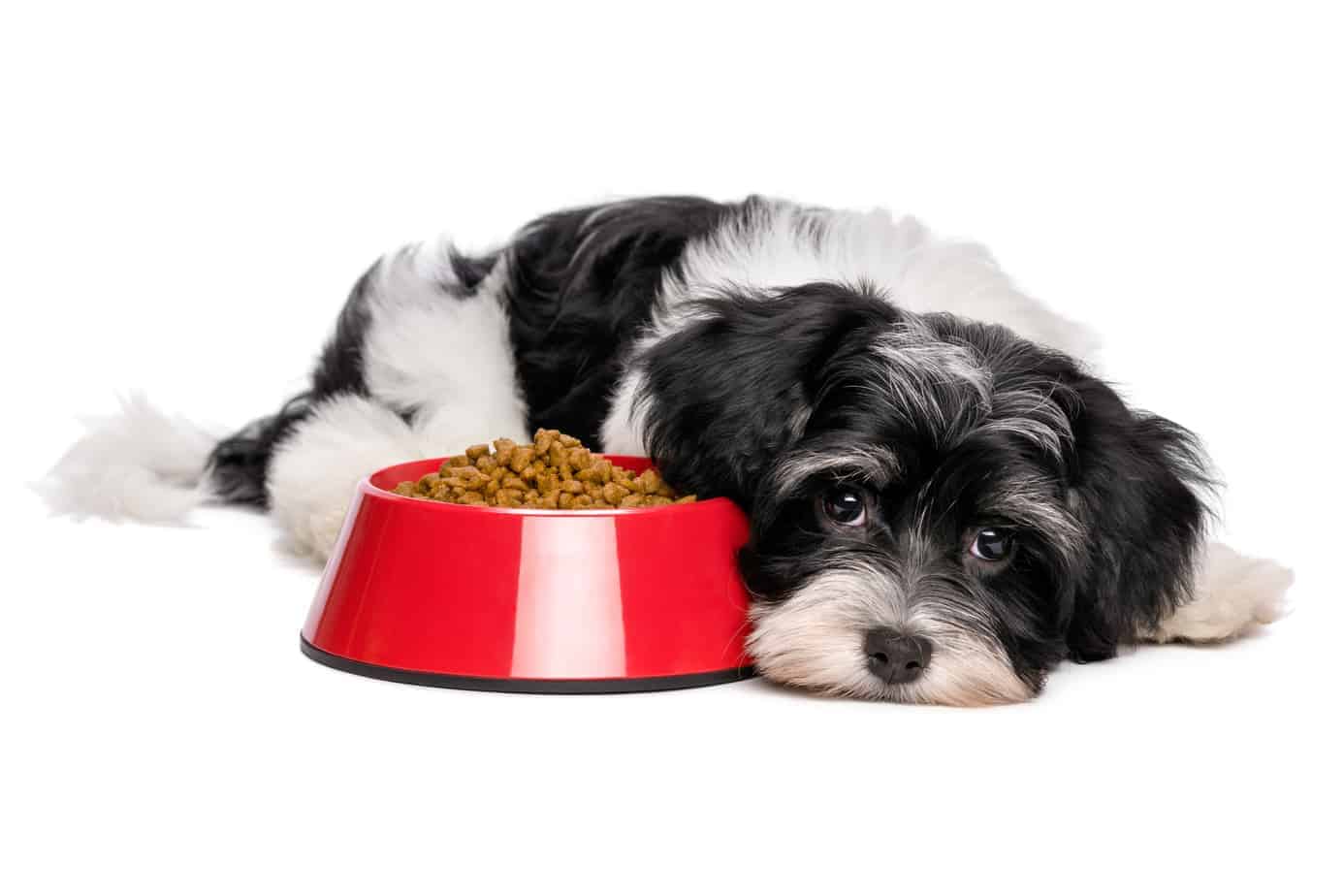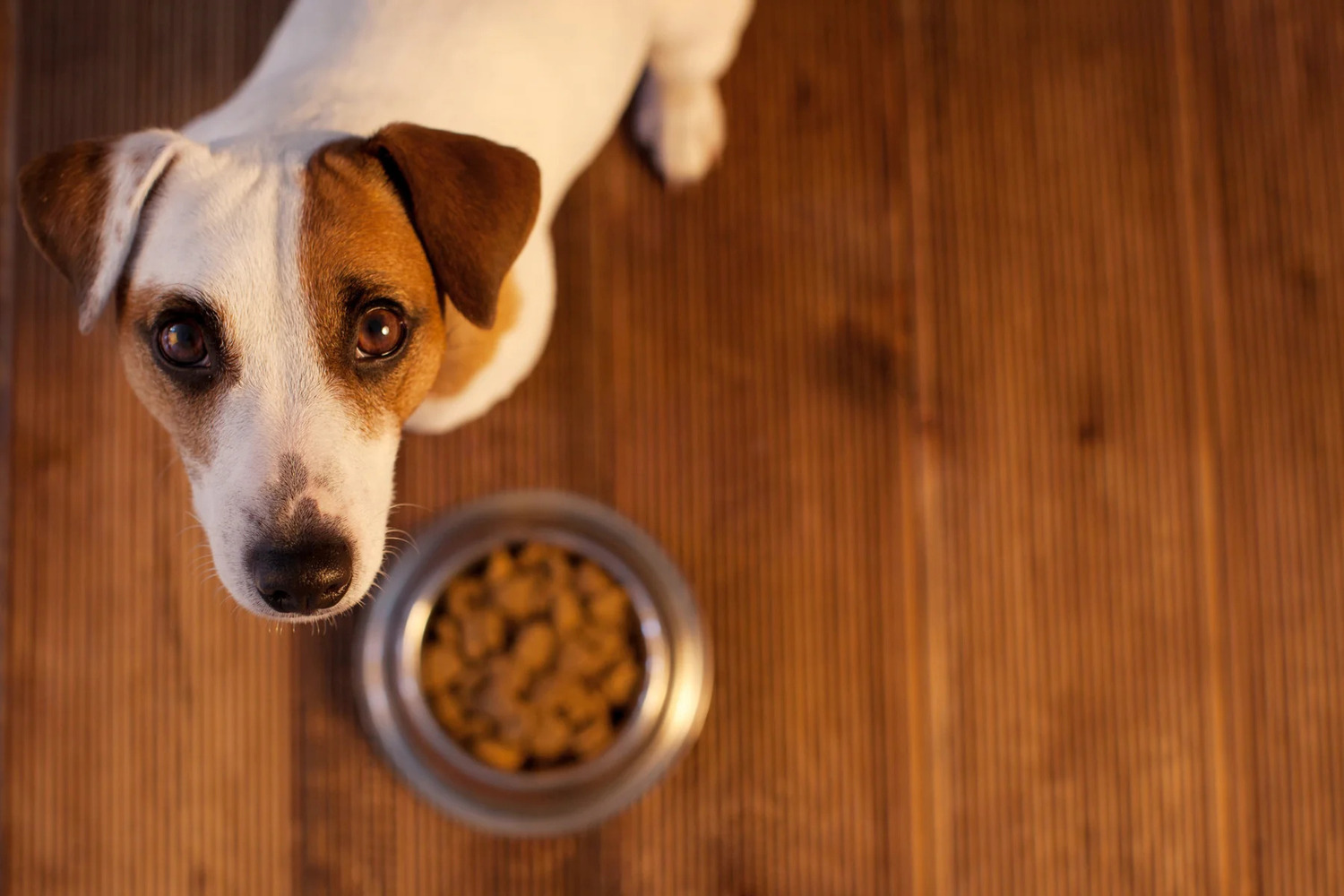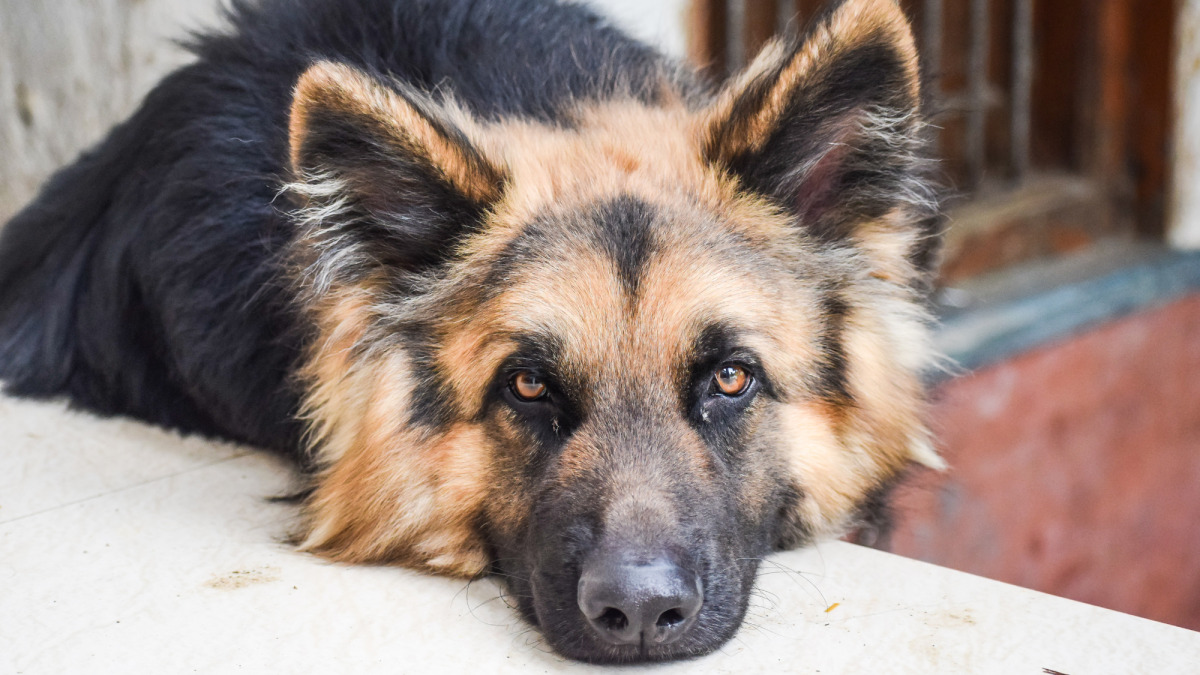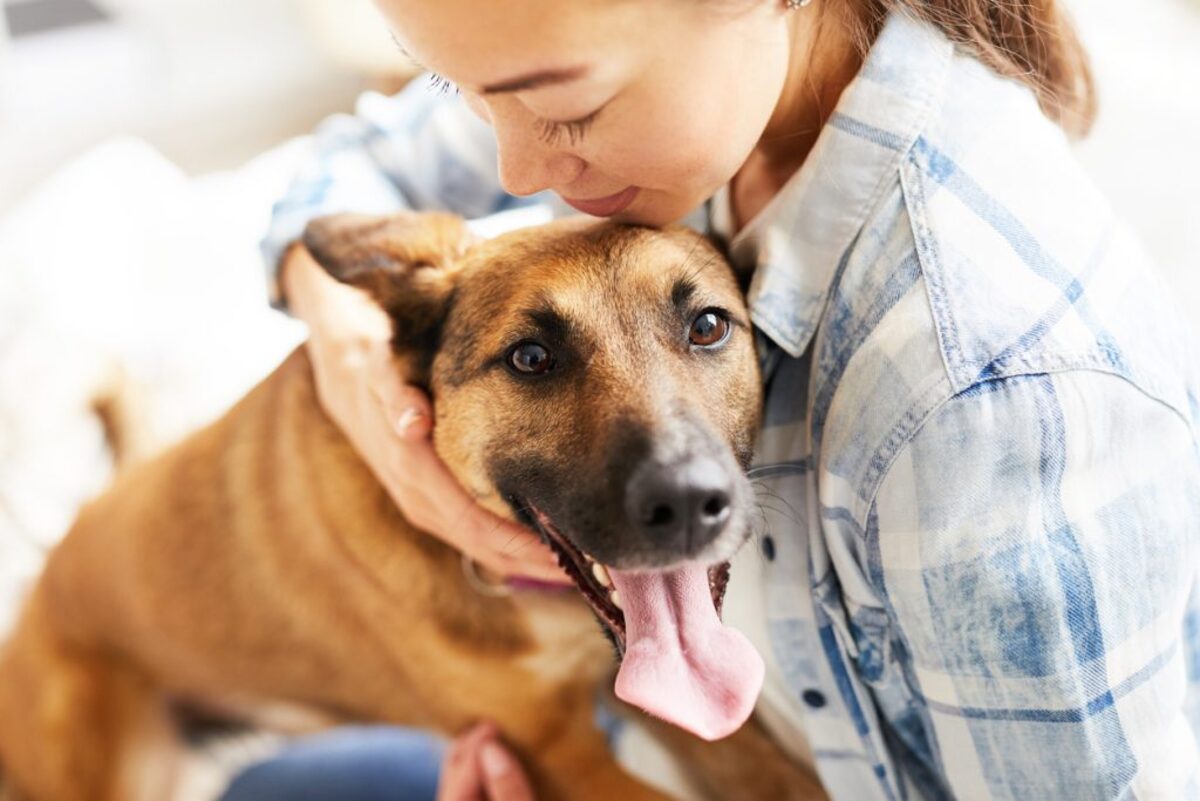Home>Health & Wellness>Nutrition & Diet>What Kind Of Diet Should A Dog With High Liver Enzymes Eat?
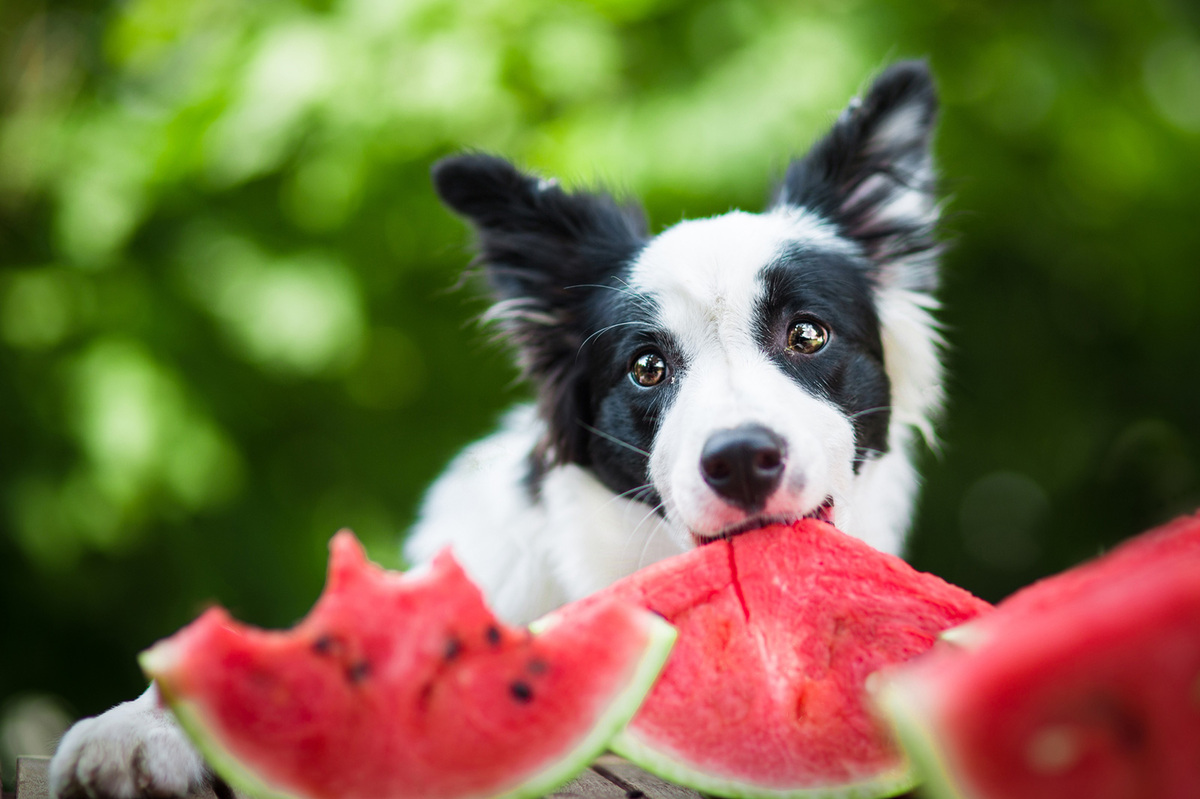

Nutrition & Diet
What Kind Of Diet Should A Dog With High Liver Enzymes Eat?
Published: January 27, 2024
Discover the best nutrition and diet for dogs with high liver enzymes to support their liver health and overall well-being. Learn how to create a balanced and tailored diet for your furry friend.
(Many of the links in this article redirect to a specific reviewed product. Your purchase of these products through affiliate links helps to generate commission for Pawsomeoldies.com, at no extra cost. Learn more)
Table of Contents
Introduction
When a dog is diagnosed with high liver enzymes, it can be a cause for concern for pet owners. The liver plays a crucial role in a dog's overall health, as it is responsible for filtering toxins from the bloodstream and aiding in digestion. Elevated liver enzymes can indicate an underlying health issue that requires attention and care.
In such cases, one of the key aspects of managing a dog's health is through dietary adjustments. A well-planned diet can significantly impact a dog's liver function and overall well-being. Understanding the role of nutrition in supporting liver health is essential for pet owners and caregivers.
In this article, we will delve into the significance of diet for dogs with high liver enzymes, explore the recommended dietary guidelines, and highlight the foods to avoid. By gaining insights into the dietary considerations for dogs with elevated liver enzymes, pet owners can take proactive steps to support their furry companions' health and quality of life.
Read more: What Is A High Protein Diet In Dogs
Understanding High Liver Enzymes in Dogs
High liver enzymes, also known as elevated liver enzymes, refer to an increase in the levels of certain enzymes produced by the liver. In dogs, these enzymes include alanine aminotransferase (ALT), aspartate aminotransferase (AST), and alkaline phosphatase (ALP). When these enzymes are elevated, it indicates potential liver damage or dysfunction.
The liver is a vital organ responsible for a wide range of functions, including detoxification, metabolism, and the production of essential proteins. When the liver is compromised, it can lead to a variety of health issues for dogs. Elevated liver enzymes can be indicative of underlying conditions such as hepatitis, liver infections, tumors, or certain medications that can affect liver function.
Routine blood tests are typically used to assess liver enzyme levels in dogs. If elevated liver enzymes are detected, further diagnostic tests, such as ultrasound or liver biopsy, may be recommended to determine the underlying cause and severity of the liver condition.
It's important to note that high liver enzymes in dogs can be a symptom of an underlying health issue rather than a specific diagnosis. Therefore, identifying the root cause of elevated liver enzymes is crucial for developing an effective treatment plan and implementing dietary and lifestyle modifications to support the dog's liver health.
Understanding the significance of liver enzymes and their role in overall liver function is essential for pet owners and caregivers. By recognizing the implications of elevated liver enzymes, pet owners can work closely with veterinarians to address the underlying causes and provide the necessary support to help their furry companions lead healthier and happier lives.
Importance of Diet for Dogs with High Liver Enzymes
The significance of diet for dogs with high liver enzymes cannot be overstated, as it plays a pivotal role in managing their liver health and overall well-being. A carefully tailored diet can help alleviate the burden on the liver, support its regenerative processes, and mitigate potential complications associated with elevated liver enzymes.
Dietary interventions for dogs with high liver enzymes are designed to address several key objectives. Firstly, the diet aims to reduce the workload on the liver by providing easily digestible nutrients, thereby minimizing the production of toxins and metabolic by-products that the liver must process. Additionally, a specialized diet can help mitigate inflammation and oxidative stress within the liver, promoting its healing and regeneration.
Furthermore, an appropriate diet for dogs with elevated liver enzymes focuses on providing high-quality proteins to support the synthesis of essential proteins and enzymes, which are crucial for various physiological functions. Adequate protein intake is essential for maintaining muscle mass and supporting the immune system, both of which are integral to a dog's overall health, especially when dealing with liver-related challenges.
Moreover, the role of nutrition in managing dogs with high liver enzymes extends to addressing specific nutrient imbalances and deficiencies that may arise due to compromised liver function. Essential nutrients, such as vitamins and minerals, are carefully incorporated into the diet to ensure optimal support for the liver and other vital bodily functions.
By recognizing the profound impact of diet on a dog's liver health, pet owners and caregivers can actively participate in their furry companions' well-being. Collaborating with veterinarians to develop a tailored dietary plan that aligns with the dog's specific health needs is crucial for optimizing the management of high liver enzymes and promoting the dog's overall health and vitality.
In essence, the importance of a well-structured diet for dogs with high liver enzymes lies in its ability to alleviate liver stress, support regeneration, and provide essential nutrients, ultimately contributing to the dog's improved quality of life and long-term health outcomes.
Recommended Diet for Dogs with High Liver Enzymes
When formulating a recommended diet for dogs with high liver enzymes, the primary goal is to alleviate the strain on the liver while providing essential nutrients to support overall health. A well-balanced diet tailored to the specific needs of dogs with elevated liver enzymes can significantly contribute to their well-being and quality of life.
Key Dietary Considerations:
1. High-Quality Proteins:
Incorporating high-quality, easily digestible proteins is essential for dogs with high liver enzymes. Lean sources of protein, such as chicken, turkey, and fish, provide the necessary amino acids while minimizing the liver's workload. These proteins support muscle maintenance and aid in the synthesis of vital enzymes and proteins, contributing to overall health and immune function.
2. Controlled Sodium and Phosphorus Levels:
Managing sodium and phosphorus intake is crucial for dogs with compromised liver function. Excessive sodium can lead to fluid retention, while elevated phosphorus levels may exacerbate kidney issues commonly associated with liver disease. Therefore, a recommended diet should carefully regulate these mineral levels to prevent additional stress on the liver and kidneys.
3. Essential Fatty Acids:
Incorporating essential fatty acids, such as omega-3 and omega-6 fatty acids, can help mitigate inflammation and support liver health. Sources of these beneficial fats include fish oil and flaxseed oil, which contribute to the overall anti-inflammatory and antioxidant properties of the diet, aiding in liver function and promoting a healthy coat and skin.
4. Easily Digestible Carbohydrates:
Complex carbohydrates that are easily digestible, such as rice and sweet potatoes, provide a readily available energy source without burdening the liver. These carbohydrates help maintain stable blood sugar levels and support gastrointestinal health, crucial for dogs with compromised liver function.
5. Balanced Nutrient Profile:
A recommended diet for dogs with high liver enzymes should encompass a balanced nutrient profile, including essential vitamins and minerals. This ensures that the dog receives all necessary nutrients for overall health while addressing any potential deficiencies resulting from liver dysfunction.
Specialized Prescription Diets:
In some cases, veterinarians may recommend specialized prescription diets formulated specifically for dogs with liver issues. These diets are meticulously designed to meet the unique nutritional requirements of dogs with high liver enzymes, taking into account their specific health challenges and dietary sensitivities.
By adhering to a recommended diet tailored to the individual needs of dogs with high liver enzymes, pet owners can actively contribute to their furry companions' well-being. Collaborating closely with veterinarians to implement and monitor the dietary plan is essential for optimizing the management of elevated liver enzymes and supporting the dog's overall health and vitality.
In essence, a thoughtfully crafted diet for dogs with high liver enzymes serves as a cornerstone in their comprehensive care, aiming to alleviate liver stress, support regeneration, and provide essential nutrients for improved quality of life.
I have provided a comprehensive overview of the recommended diet for dogs with high liver enzymes, emphasizing key dietary considerations and the importance of tailored nutrition in supporting their well-being. If you require further details or specific dietary guidelines, feel free to let me know!
Foods to Avoid for Dogs with High Liver Enzymes
When managing the dietary needs of dogs with high liver enzymes, it is equally crucial to identify and eliminate foods that can exacerbate liver stress and compromise their overall health. By understanding the foods to avoid, pet owners can proactively support their furry companions' liver function and well-being.
-
High-Fat Foods:
Dogs with high liver enzymes should avoid consuming high-fat foods, as excessive fat intake can burden the liver and contribute to inflammation. Foods such as fatty cuts of meat, fried items, and rich dairy products should be excluded from their diet to prevent additional strain on the liver. -
Processed Foods:
Processed foods, including commercial treats and snacks high in preservatives and additives, should be avoided. These items often contain artificial ingredients and excessive sodium levels, which can be detrimental to the liver and overall health of dogs with compromised liver function. -
Onions and Garlic:
Onions and garlic, whether raw, cooked, or powdered, contain compounds that can be toxic to dogs and may further impair liver function. It is essential to meticulously exclude these ingredients from the dog's diet to prevent potential adverse effects on their liver health. -
Grapes and Raisins:
Grapes and raisins are known to be toxic to dogs and can lead to severe complications, including kidney failure. Given the interconnectedness of liver and kidney function, it is imperative to keep these fruits away from dogs with high liver enzymes to avoid exacerbating their condition. -
High-Sodium Foods:
Foods high in sodium, such as processed meats, salty snacks, and excessive table salt, should be restricted in the diet of dogs with elevated liver enzymes. High sodium intake can contribute to fluid retention and exacerbate liver and kidney challenges, necessitating careful monitoring and avoidance. -
Unregulated Supplements:
Unregulated supplements and herbal products should be avoided unless specifically recommended by a veterinarian. Certain supplements and herbs may interact with the liver or have unknown effects, potentially complicating the management of high liver enzymes in dogs.
By being mindful of the foods to avoid and diligently regulating the dog's dietary intake, pet owners can play a proactive role in supporting their furry companions' liver health. Collaborating closely with veterinarians to ensure adherence to the recommended dietary guidelines and restrictions is essential for optimizing the management of high liver enzymes and promoting the dog's overall well-being.
In essence, by understanding and implementing the dietary exclusions, pet owners can contribute to mitigating liver stress and supporting the dog's journey towards improved health and vitality.
Conclusion
In conclusion, the management of high liver enzymes in dogs necessitates a multifaceted approach, with dietary considerations playing a pivotal role in supporting their liver health and overall well-being. By understanding the significance of nutrition in mitigating liver stress and promoting regeneration, pet owners can actively contribute to their furry companions' quality of life.
The recommended diet for dogs with high liver enzymes encompasses key principles aimed at alleviating the burden on the liver, providing essential nutrients, and supporting overall health. Emphasizing high-quality proteins, controlled mineral levels, essential fatty acids, and easily digestible carbohydrates forms the foundation of a tailored dietary plan. Additionally, specialized prescription diets, when recommended by veterinarians, offer targeted nutritional support aligned with the specific needs of dogs with liver issues.
Concurrently, identifying and excluding foods that can exacerbate liver stress, such as high-fat foods, processed items, onions, garlic, grapes, and high-sodium foods, is essential for mitigating potential complications and supporting the dog's liver function.
By collaborating closely with veterinarians to implement and monitor the recommended dietary guidelines, pet owners can actively participate in their furry companions' well-being. This collaborative approach ensures that the dietary plan aligns with the dog's specific health needs, thereby optimizing the management of high liver enzymes and fostering improved health outcomes.
In essence, the comprehensive care of dogs with high liver enzymes involves a harmonious integration of tailored nutrition, veterinary guidance, and attentive monitoring. By recognizing the profound impact of diet on their furry companions' liver health, pet owners can embark on a proactive journey towards supporting their dogs' well-being and enhancing their overall quality of life.
The insights provided in this article aim to empower pet owners with the knowledge and understanding necessary to navigate the dietary considerations for dogs with high liver enzymes. By embracing a holistic approach that encompasses specialized nutrition, attentive care, and informed decision-making, pet owners can play a pivotal role in supporting their furry companions' liver health and fostering a thriving, vibrant life for their beloved dogs.


